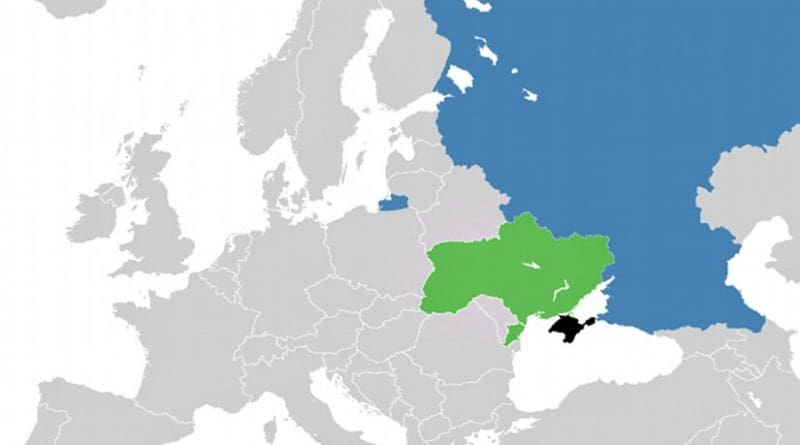Russia’s Tanker Threats Shouldn’t Worry Ukraine – OpEd
By Nikola Mikovic
Ukraine will not face any consequences for the recent seizure of the Russian tanker in the Black Sea. In spite of harsh threats from the Kremlin, Kiev can rest assured that Russia will not take any decisive actions, even if Ukraine doesn’t release the tanker.
If history is any guide, since the beginning of the Russia-Ukraine conflict in 2014, Moscow sent several warnings to Kiev over various issues. All the warnings have appeared to be empty threats.
In August 2016 Russian President Vladimir Putin accused the Ukrainian Defense Ministry of killing a Russian soldier and an FSB officer in Crimea, at the border with Ukraine. Apparently, Ukraine sent a sabotage-reconnaissance group to Crimea, which resulted in a brief border clash. Putin said Russia would “not let such things slide by,” but Moscow never responded to the alleged killing of its military and intelligence personnel.
Angry mobs in Kiev have also attacked the Russian embassy on several occasions.
In June 2014, the crowd of more than 100 mostly young people pelted the Russian embassy with eggs, and ripped up a Russian flag in protest at what they called Moscow’s backing of separatist rebels in the Donbass. The demonstrators then overturned several cars, including some which appeared to belong to the embassy, and damaged the metal gate, but police did not intervene. Russia, naturally, verbally condemned the violence but never responded.
In 2016, protestors threw stones and eggs at the Russian embassy building, breaking several windows, smashing cars, and burning a Russian flag, all while demanding the release of Nadezhda Savchenko, a Ukrainian pilot on trial in Russia for the alleged killing of two journalists. Russia didn’t take any actions against Kiev.
In 2018, after the Kerch Strait incident, angry mobs fired flares and lit a car on fire outside the Russian embassy in Kiev demanding the release of three Ukrainian vessels and 24 sailors captured by Russia. After that, NATO announced plans to deploy warships to the Black Sea to ensure safe passage for Ukrainian vessels through the Kerch Strait, which is now effectively controlled by Russia. If the Kremlin allows such transit, NATO and Ukraine will doubtlessly see it as a sign of Russian weakness.
Following this new incident, Russia declared that there would be consequences “if Russians have been taken hostages.” It didn’t specify what consequences Ukraine might face, though. Surprisingly, Ukraine took this threat seriously and immediately released the Russian sailors, though not the tanker itself.
This is not the first time that Ukraine has captured a Russian ship. In March 2018, Ukraine’s State Border Service detained a fishing vessel flying the Russian flag in the Sea of Azov, whose crew included ten Russian nationals. On October 30, Kiev handed the sailors over to Russia in exchange for seven Ukrainian crew members from the YaMK-0041 and YaOD-2105 ships detained for illegal fishing off Crimea’s coast.
According to unofficial sources, Russia is now willing to exchange 24 Ukrainian sailors for captured Russian soldiers and other citizens of the Russian Federation being held imprisoned in Ukraine. It’s possible that Kiev attempted to include the crew of the Russian tanker in the prison swap deal. If that was the plan, it obviously failed. Ukraine, however, still holds seized the Russian tanker, which means that it can negotiate a ship exchange with Moscow.
In any case, the tanker seizure can be interpreted as another provocation. The Kremlin officials will certainly keep accusing Kiev of piracy, but apart from that there’s not much that Russia can actually do against Ukraine. Theoretically, Russians can capture Ukrainian ships in the Sea of Azov as retaliation, but such an option is very unlikely since Moscow is trying to avoid any serious confrontation with Ukraine and its Western backers – at least for now.
The views expressed in this article are those of the author alone and do not necessarily reflect Geopoliticalmonitor.com or any institutions with which the author is associated.

